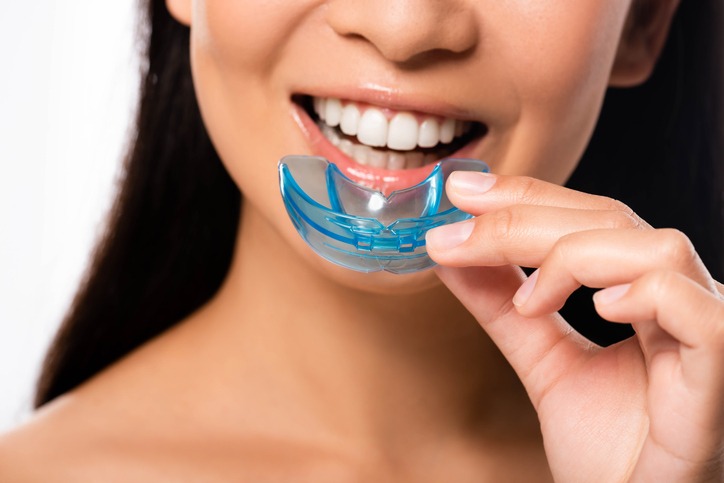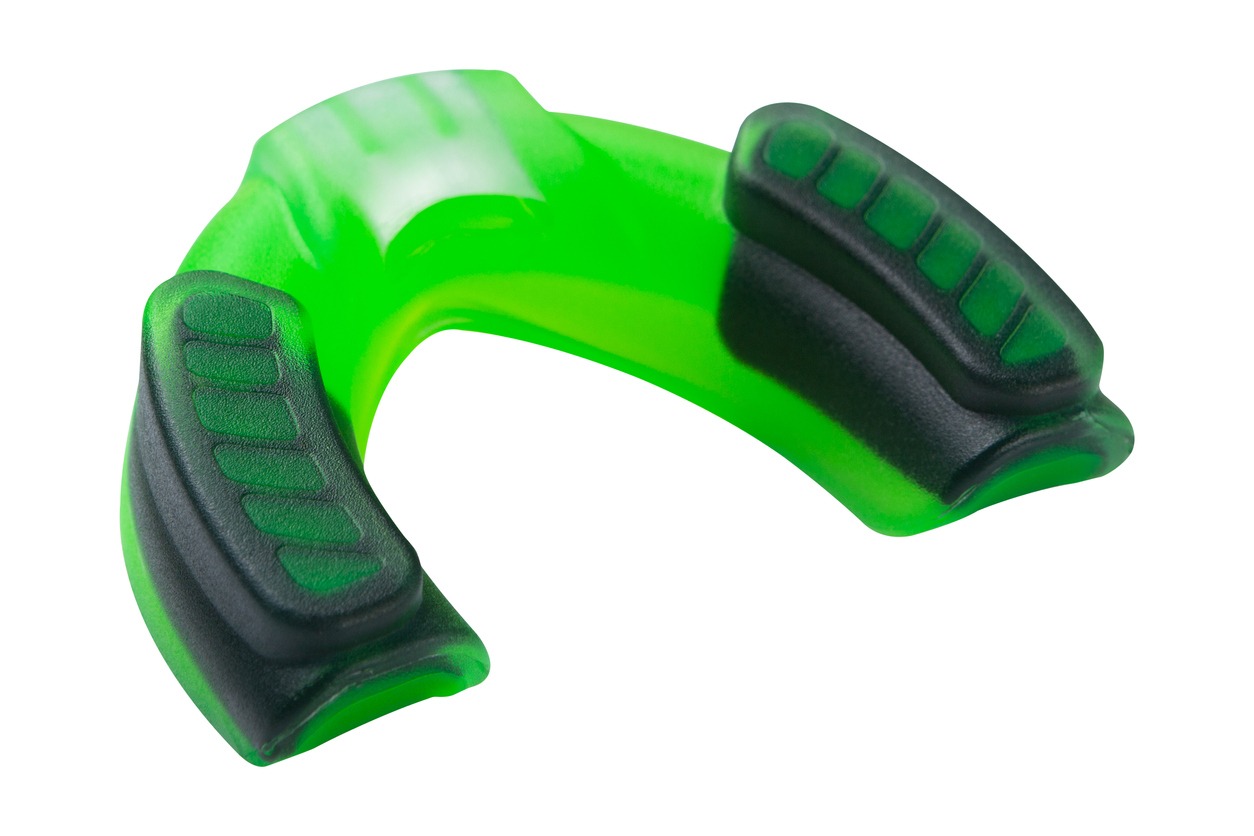A smile is worth protecting, especially if you lead an active lifestyle or participate in sports. Mouthguards are not just protective equipment; they can also be a style statement. Custom mouthguards combine the best of both worlds: unparalleled protection tailored to the individual’s mouth and the opportunity to personalize this protective gear to reflect personal style or team spirit.
Introduction to Mouthguards
A mouthguard is a protective device for the mouth that covers the teeth and gums to prevent and reduce injury to the teeth, arches, lips, and gums. It’s commonly used in sports where the risk of oral injury is high, as well as a treatment tool for bruxism (teeth grinding) or TMD (temporomandibular disorders).
Types of Mouthguards
There are primarily three types of mouthguards, each varying in cost, comfort, and level of protection:
- Stock Mouthguards: These are pre-formed and come ready to wear. They are the least expensive option and can be bought at most sporting goods stores. However, they often don’t fit very well, can be bulky, and may make breathing and talking difficult.
- Boil and Bite Mouthguards: These are made from thermoplastic material and are also available at many sporting goods stores. They are placed in hot water to soften, then put in the mouth to form a precise fit around the teeth using finger, tongue, and sometimes biting pressure.
- Custom-Fitted Mouthguards: These are individually designed and made in a dental office or a professional laboratory based on your dentist’s instructions. First, your dentist will make an impression of your teeth and a mouthguard is then molded over the model using a special material. This custom-made fit provides the most protection and comfort and is considered the best option, especially for athletes engaging in high-impact sports.
Uses of Mouthguards
Sports: In sports, mouthguards are used to protect athletes from injuries to the mouth area, such as tooth avulsion (displacement), fractures, or lacerations to the lip and mucosa, especially in contact sports like football, boxing, hockey, basketball, martial arts, and lacrosse.
Dental Protection: Mouthguards can also be used as part of dental procedures, especially for night-time use in people who grind their teeth (bruxism) or to help alleviate TMJ/TMD pain.
Orthodontic Treatment: For patients with braces or other fixed dental appliances, special orthodontic mouthguards can be used to protect the mouth during sports activities.
Mouthguard Materials
Mouthguards can be made from a variety of materials, each chosen for its specific properties like flexibility, durability, and capacity for shock absorption. Here are the types of materials commonly used for mouthguards:
Ethylene Vinyl Acetate (EVA): EVA is the most commonly used material in the manufacture of mouthguards. It’s a flexible and durable thermoplastic polymer that offers a good balance between comfort and protection. When heated, EVA becomes pliable, which is why it’s used for boil-and-bite mouthguards. Once cooled, it retains the shape of the teeth and gums, providing a custom fit.
Polyurethane: Polyurethane is sometimes used in higher-end, custom mouthguards. It’s a versatile polymer that can be rigid or flexible and is valued for its toughness and energy absorption properties.
Silicone: Silicone is softer than both EVA and polyurethane and can offer a more comfortable fit, which is particularly useful for night guards used by patients who grind their teeth. Silicone’s softer nature means it might not be the best choice for high-impact sports mouthguards.
Acrylic: Acrylic can be used in combination with other materials to add rigidity to mouthguards, especially those that require additional support, such as those used for bruxism treatment.
Thermoplastic Polyurethane (TPU): TPU is known for its elasticity, transparency, and resistance to oil, grease, and abrasion. It is used in some sports mouthguards and provides excellent protection and longevity.
Latex and BPA-Free Materials: For individuals with allergies to conventional materials, there are latex-free and BPA-free options available. These materials ensure that the user does not experience any allergic reactions or exposure to bisphenol A (BPA), a chemical some people prefer to avoid for health reasons.
Biodegradable Materials: As environmental concerns become more prominent, some manufacturers are exploring biodegradable options for mouthguards. These materials are designed to provide the necessary protection while being more eco-friendly.
The Importance of Mouthguards
Wearing a mouthguard is an easy way to prevent dental injuries, which can often be severe and require extensive treatment. It’s estimated that mouthguards prevent hundreds of thousands of oral injuries each year. They are considered an essential part of athletic gear for anyone participating in activities that carry a significant risk of oral injury.
Custom Mouthguards vs. Over-the-Counter
Custom Fit:
- Personalized Protection: A custom mouthguard is made from a mold of your teeth, ensuring a perfect fit that will stay in place better and provide superior protection.
- Comfort: Custom mouthguards are more comfortable to wear, as they are specifically designed for the individual’s dental structure.
Style Options:
- Colors and Patterns: Custom mouthguards come in a variety of colors and patterns, allowing athletes to choose designs that reflect their personality or team colors.
- Logos and Text: Many custom mouthguard providers offer the option to add logos, names, or other personalized text.
Quality Material:
- Durable Construction: Made from high-quality materials, custom mouthguards are more durable and offer better shock absorption.
- Breathability: They are designed to allow easy breathing and communication, which is crucial during sports.
How Custom Mouthguards Are Made
Dental Impressions: The process begins with a dental professional taking an impression of your teeth, which will serve as the template for the mouthguard.
Manufacturing: The impression is used to create a precise mold, and the mouthguard material is crafted to fit this mold exactly.
Fitting: Once the mouthguard is made, you’ll have a fitting session to ensure comfort and adjust as necessary.
Maintaining Your Custom Mouthguard
Cleaning and Care:
- Rinse your mouthguard with cold water or mouthwash after each use.
- Clean it with a toothbrush and toothpaste regularly.
- Allow it to air-dry before storing it in a ventilated container.
Storage:
- Keep it in a firm, perforated container to prevent damage and allow air circulation.
Regular Check-ups:
- Bring your mouthguard to dental check-ups to ensure it’s still fitting correctly and to assess for wear and tear.
Making a Statement with Your Mouthguard
Team Unity: Teams often order matching custom mouthguards to create a sense of unity and intimidation.
Personal Flair: For individual athletes, a mouthguard can be a way to stand out on the field or court with a unique design.
Conclusion
Custom mouthguards are more than just protective equipment; they are an investment in dental health and a chance to showcase individuality or team pride. They offer superior protection, a perfect fit, and the opportunity to express yourself in a way that off-the-shelf mouthguards simply cannot match. Whether you’re on the field, in the ring, or on the court, a custom mouthguard keeps your smile safe in style.


